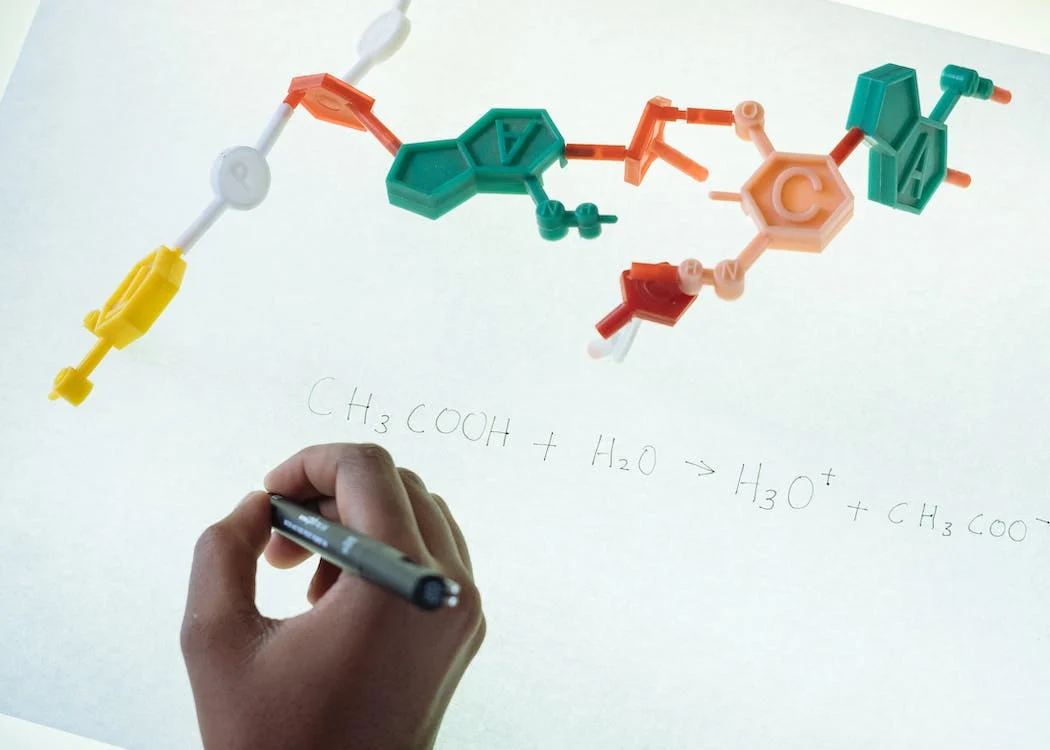According to the U.S. Bureau of Labor Statistics, a chemist can be found in laboratories, manufacturing facilities, and offices, generally working full-time. A minimum of a bachelor’s degree is typically required to pursue a career in chemistry field, with advanced degrees such as a master’s or Ph.D. potentially required for certain roles, including research positions.
Job prospects for chemists and materials scientists are expected to grow by 6 percent between 2021 and 2031, which is about the same as the average rate for all occupations.
If you’re interested in pursuing a career in chemistry, you should be well-versed in the subject and have a strong foundation to build upon. Chemistry is a highly specialized field with many different niches and specialties, so it’s important to choose a path that fits your interests and goals.
Here are some of the essential steps for preparing yourself for a career in chemistry:
Develop a Strong Foundation in Chemistry
Developing a strong foundation in chemistry is an essential step in preparing for a career in the field. It is important to gain a solid understanding of the fundamental principles of chemistry through coursework, laboratory experience, and research opportunities.
Students can engage in a general chemistry course that provides them with a strong theoretical foundation to reinforce their understanding of the concepts. They can also utilize online learning resources, such as Proprep, to supplement their education and gain additional knowledge and skills in the field of chemistry. Online resources like this can help you gain a deeper understanding of the subject matter and reinforce your knowledge through practice problems and interactive learning tools.
By building a strong foundation in chemistry, students can develop the necessary skills and knowledge to pursue a successful career in the field.
Acquire Hands-On Laboratory Skills
Chemistry World notes that the laboratory is where the real excitement lies in learning organic chemistry. It’s crucial to connect theoretical knowledge to the physical world. Organic chemistry reactions are not just formulas, symbols, and curly arrows. They are real physical processes that have a tangible impact on the world.
For instance, while writing down the mechanism of Fischer’s esterification is informative, the feeling of transforming it into something entirely new with one’s own hands is like experiencing magic or alchemy.
To prepare for a career in chemistry, it is important to build practical laboratory skills. This can be done through hands-on laboratory experience in academic courses and research opportunities.
In addition to academic laboratory experience, seeking internships or co-op programs in industry or government laboratories can provide valuable practical experience.
Seek Out Mentors and Networking Opportunities
One way to prepare for a career in chemistry is to seek out mentors and networking opportunities. Mentors can provide guidance, share their experiences, and offer advice on career paths and opportunities.
Networking can also be a valuable tool for meeting professionals in the field, learning about job openings, and building relationships that can lead to future opportunities. Attend conferences, join professional organizations, and connect with alumni from your university or college to expand your network.
Additionally, participating in research programs, internships, and volunteering can provide valuable experience and connections in the field of chemistry.
Stay Up to Date With Industry Advancements
It’s important to stay up to date with industry advancements in chemistry, such as discoveries, research findings, and technological innovations. This can be achieved by attending conferences, workshops, and seminars, reading scientific journals and publications, and following industry leaders on social media.
By staying informed, you can gain a competitive edge in your career and stay relevant in a constantly evolving industry. Additionally, keeping up with advancements in chemistry can help you identify new career opportunities and expand your knowledge and skills in the field.
Develop Transferable Skills
In addition to chemistry-specific skills, it is important to develop transferable skills that are in high demand in the workforce. These skills include critical thinking, problem-solving, communication, teamwork, and leadership. Participating in extracurricular activities, volunteering, and internships can provide opportunities to develop these skills.
Additionally, pursuing a minor or double major in a related field, such as business or computer science, can broaden your skillset and make you more marketable to employers. Developing transferable skills can not only make you a more well-rounded professional but can also enhance your career opportunities and potential for advancement.
Gain Practical Experience
Gaining practical experience is essential in preparing for a career in chemistry. Seek internships, co-op opportunities, and research experiences to apply your knowledge and skills in the real world. This will not only help you build a strong resume but also provide you with invaluable hands-on experience that can help you stand out to potential employers.
Look for opportunities to work with professionals in the field and learn from their expertise. In addition to providing you with practical skills, these experiences can also help you build professional connections that can be beneficial for your future career.
Pursue Advanced Education
According to Research.com, associate degree programs in chemistry prepare students for roles as research technicians and laboratory assistants, while completing undergraduate studies can lead to more advanced positions such as chemists, engineers, and head technologists. Pursuing an advanced degree in chemistry can provide opportunities for employment as a consultant or college instructor, among other roles.
Choosing a study path in chemistry allows students to explore various specializations, leading to advanced academic programs in fields such as pharmaceuticals, chemical engineering, and medicine. These programs can prepare graduates for careers in both the public and private sectors, ranging from academic research institutes to large multinational companies in the oil and gas industry.
Conclusion
We hope this guide has given you some insight into how to prepare for a career in chemistry. The best way to start is by developing a solid foundation in the subject, which can be done through online learning resources and by building practical laboratory skills. Once you’ve got that down pat, seek out mentors who can guide you along your journey toward becoming a chemist.
